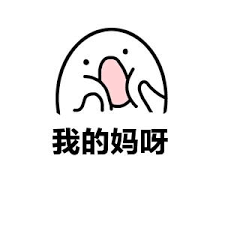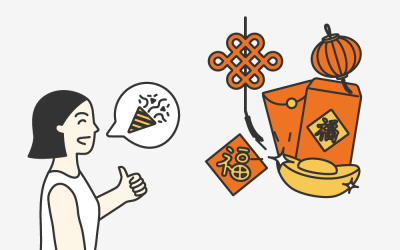Our life is full of uncertainties and surprises, therefore it’s always good to learn how to express your own feelings in words when you feel surprised about something. Today we will teach you for simple words that may come in handy when you feel “shocked”.
1. 天啊(tiān a): Oh god!
“天(tiān)” means “sky” or “heaven”. “天啊(tiān a)” literally means “Oh heaven!”, which is quite similar to the English phrase “Oh, god!”.

Example:
A: John had a car accident yesterday.
B: Oh, god! How is he now?
A: John昨天出车祸了。
B: 天啊! 他现在怎么样?
A:John zuó tiān chū chē huò le.
B: tiān a! tā xiàn zài zěn me yàng?
2. 不会吧….(bú huì ba….): It can’t be.. or no way!
“不会(bú huì)” means “can’t”, therefore it’s easy to get the meaning of this word. “不会吧….(bú huì ba….)” means “it can’t be….”.

Example:
A: Tomorrow’s meeting has been canceled.
B: It can’t be….It’s a very important meeting.
A: 明天的会议取消了。
B: 不会吧….这是一个很重要的会议。
A: míng tiān de huì yì qǔ xiāo le.
B: bú huì ba….zhè shì yí gè hěn zhòng yào de huì yì.
3. 我晕(wǒ yūn): I’m about to faint.
“晕(yūn)” means “to faint”. It’s often used when you see, or hear, or experience something beyond your expectation. It’s like “I didn’t expect that, and I am about to faint.”

Example:
A: Your mobile phone is not working properly.
B: What? I had it repaired yesterday.
A: 你的手机坏了。
B: 我晕,我昨天才修好的。
A: nǐ de shǒu jī huài le.
B: wǒ yūn ,wǒ zuó tiān cái xiū hǎo de.
4. 真的吗?(zhēn de ma?): Really?
“真(zhēn)” means “real”. “真的吗?(zhēn de ma?)” is used when you hear something surprising and you want to make sure it’s true.

Example:
A: Jason left for Australia for good.
B: Really?
A: Jason去澳大利亚定居了。
B: 真的吗?
A: Jason qù ào dà lì yà dìng jū le.
B: zhēn de ma?
5. 我的妈呀!(wǒdemā ya!): Oh my god!
Literally translated, this means “oh my mother!” but it’s equivalent to “oh my god” in the English language. It can be used in situations where you’re mildly surprised to being awfully shocked.

Example:
Tina: I’m pregnant.
John: Oh my god, are you serious?!
Tina: 我怀孕了.
John: 我的妈呀!真的吗?!
Tina: Wǒ huáiyùnle.
John: Wǒ de mā ya! Zhēn de ma?!








0 Comments